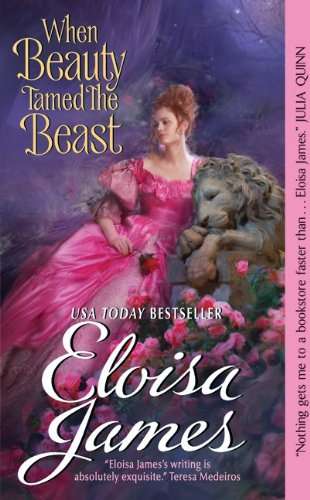
In Defense of Romance
Written by: Beth Woodward, CC2K Books Editor
 I think romance gets a bad rap.
I think romance gets a bad rap.
I’ve been thinking about this ever since I saw Eloisa James speak at the National Book Festival a few weeks ago. I was struck by the fact that one of the most popular romance writers in the industry seemed almost apologetic about her profession, like she still had to justify to her (now deceased) parents and academic peers (she is, in her daily life, a university professor) why she was “just” a romance writer.
Maybe I’m wrong. I hope I am. I hope that I’m projecting something onto her speech that she wasn’t really saying. But there was a definite self-deprecating, “I know literary fiction is better than romance but what can you do?” vibe to her presentation that I don’t think I’m misrepresenting.
Even compared to other types of genre fiction (science fiction, fantasy, mystery, etc.), romance seems to be continually disrespected—in spite of the fact that romance has more readers than any of those other genres. I tend to think that has a lot to do with the fact that romance is the most female-dominated genre—both its readers and its writers.
And you know what? It’s bull. Back in college, I took a literature class. The professor named Jane Austen as the mother of the modern novel, saying that she originated the concept of three-dimensional characters with vivid interior lives. Yet when I hear many people talking about Austen outside of the classroom, she’s often classified as “just chick lit.”
Sigh.
A romance novel is, by definition, a book that focuses primarily on a romantic relationship and ends happily. Once upon a time, this meant a heterosexual couple, but now the definition has expanded to include same-sex couples and, occasionally, even polyamorous ones. But the focus on the romantic relationship, and the happy ending, remains.
Within those confines, though, there’s a lot of flexibility. Romance has a lot of subgenres, including contemporary romance, historical romance, paranormal romance, and romantic suspense.
One of the things I love about romance is knowing that no matter how bad things get, things will turn out happily in the end. But one of the things that Eloisa James said in her presentation that I did agree with is that the best romances leave you feeling, right up until the very end, that the couple won’t get together.
But there’s more to it than that. Romance is, by necessity, character driven—more so than other genres. The success of a romance novel lives and dies on whether you care about these characters and their relationship. The best romance novels have complex, vivid characters whose interactions are unique and interesting.
Just like any other genre, there is a lot of crap out there in the romance world. But some of the better romances have been among the most memorable, satisfying books I’ve read.
I’m not saying you have to like romance. I’m just saying you shouldn’t judge it based solely on what it is.
